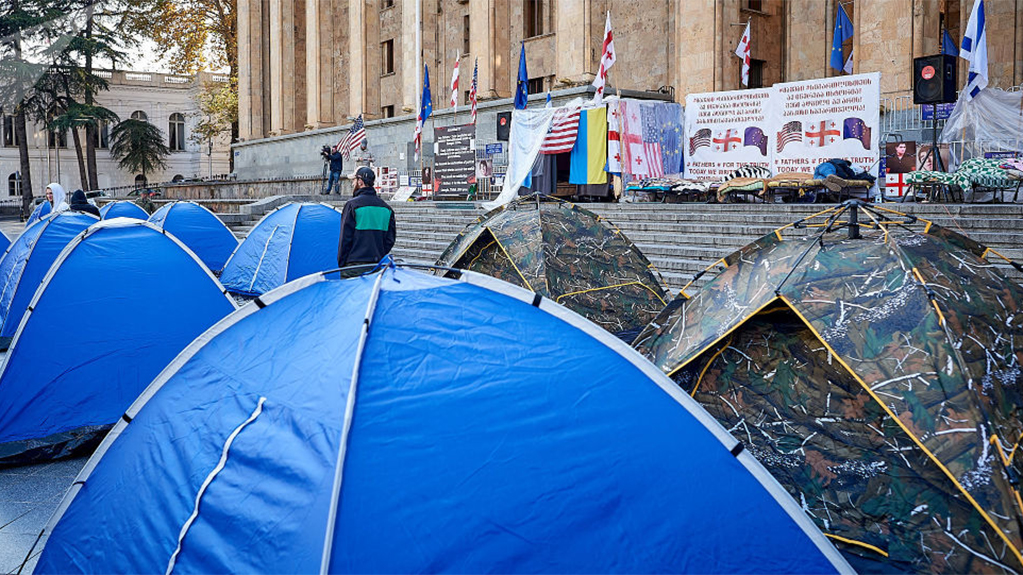According to the administration of the President of Georgia, the President will veto the amendments to the law ‘’on Assemblies and Demonstrations,’’ which are designed to limit the freedom of assembly and expression.
News
‘’The ridiculous and cynical statements of the parliamentary majority are disrespectful to our society. As the President of Georgia announced on June 22, 2022, she will use the right of veto against all those laws that go against the construction of democracy in the country and the spirit of the EU recommendations. Therefore, the President will veto the law ‘’On Assemblies and Demonstrations,’’ which restricts the freedom of assembly and expression,’’ the statement said.
Earlier, the Chairman of the ruling party, Irakli Kobakhidze, said on the air of the pro-government channel Imedi that the law ‘’On Assemblies and Demonstrations’’ will not be sent to the president and will enter into force without her signature.
‘’We decided not to send amendments to the law on gatherings to the president for her signature because the parliament adopted this law not on the basis of articles 45-46 of the Constitution of Georgia, but on article 36. Accordingly, the law will enter into force effective immediately without the President's signature,’’ said Kobakhidze.
Later, Mamuka Mdinaradze, head of the Georgian Dream faction, explained that Kobakhidze's statement was a joke.
‘’To put it simply, Irakli Kobakhidze made a similar statement to what the opposition, the president, and her representatives were claiming during the three-day trial of the Constitutional Court, and the social networks exploded and people made serious comments.
I personally didn’t think such blatant exposure was possible. With one simple joke, their jurisprudence, erudition, qualification, and perceptions all came into doubt. They began to argue seriously until they called the president's administration and found out that the bill had already been forwarded. When they saw that it had already been sent, they came to their senses and realized that they were angry about the same thing they themselves were for three days. It was a complete exposure, the like of which I struggle to recall,’’ Mdinaradze noted.
On October 5, the Parliament adopted amendments to the Law ‘’On Assemblies and Demonstrations’’ in the third reading in an accelerated manner, which prohibits the participants of the assembly or demonstration from setting up a temporary structure or pitching a tent if:
- Its arrangement poses a threat to the participants of the assembly or demonstration or other persons;
- It interferes with the maintenance of public order and security by the police;
- Causes disruption of the normal functioning of an enterprise, institution, or organization;
- It is not related to the gathering or demonstration.
The violation will lead to the confiscation of the construction or the tent and a fine of 500 GEL or confiscation and administrative imprisonment for up to 15 days. If the violator is an organizer - confiscation of the object of offense and a fine in the amount of 5000 GEL or confiscation of the object of offense and administrative imprisonment for up to 15 days.
74 deputies voted in favor of adopting the changes to the law, with 22 against.
For legislative amendments to enter into force, the bill needs the President's signature. In case of a veto, the president must return the law to the parliament with motivated remarks. The President’s veto can be overridden by the majority of the full composition of the Parliament, at least 76 deputies.
The public defender evaluated the legislative amendments negatively. Levan Ioseliani believes that the changes represent a gross interference in the right to expression/assembly, which limits the freedom of expression by using temporary constructions (for example, a tent).















